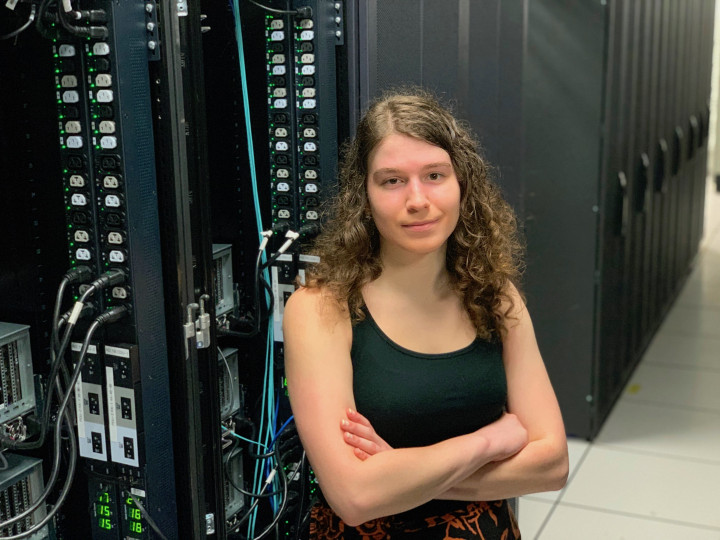CS Graduate Student Awarded DOE Computational Science Fellowship
A University of Maryland graduate student was recently awarded a fellowship from the U.S. Department of Energy (DOE) to support her work in developing realistic, large-scale simulations that can assist officials dealing with complex events like the current COVID-19 pandemic.
Joy Kitson, a first-year doctoral student in computer science, was one of only 32 graduate students in the U.S. to receive a DOE Computational Science Graduate Fellowship this year.
The competitive award can last up to four years. It provides an annual stipend of $38,000, payment of all tuition and required fees, and a 12-week practicum experience at one of the DOE’s 21 national laboratories or sites—including access to DOE supercomputers.
Kitson’s research is focused on developing large-scale epidemic simulations that are used to model a wide variety of diseases and public health interventions.
She hopes to scale-up her simulation algorithms to be able to run efficiently on large supercomputing systems. This would allow the simulation of a wide variety of proposed interventions on national or global populations quickly, assisting the government’s response-time to an outbreak of an infectious disease.
Kitson says that while the current COVID-19 pandemic has motivated much of her work in this area, she expects her computational research would be useful for future outbreaks.
“At this point, I don't expect that the simulation I’m working on will be ready for practical use until after the current pandemic is over, as much as I might wish otherwise,” she says.
As for how COVID-19 has impacted the direction of her early research efforts, Kitson says that it’s hard to say precisely, because the entire project—or at the very least her involvement in it—has taken place under the shadow of COVID.
“I don't really have a clear baseline for how it would have looked otherwise,” she says. “Certainly, the interventions side of things has been a large part of what we're working toward, and my sense of both what those look like and their importance has been shaped by my experiences during the pandemic. But interventions were also a large part of the older simulation my work is based on, and I'm sure the epidemiologists on the project were familiar with the types of interventions we’ve seen in the last year or so long before COVID hit.”
Kitson is advised at UMD by Abhinav Bhatele, an assistant professor of computer science with an appointment in the University of Maryland Institute for Advanced Computer Studies.
Bhatele says he is glad Kitson joined his research group last fall.
“Even though Joy has been at Maryland for only eight months, she has made great strides on the epidemic diffusion simulator she has been working on, while balancing other tasks such as course work and being a teaching assistant,” he says. “Once it is ready, this simulator will be a useful tool for studying pandemic outbreaks and assess the impact of intervention strategies.”
Bhatele adds that the computational resources the DOE can provide will greatly aid Kitson’s work moving forward.
“Her research on epidemic modeling will make use of large-scale high performance computing resources at several Department of Energy computing facilities,” he says. “So, this is a great fit for both Joy and for the DOE. I see a bright career ahead for her.”
—Story by Melissa Brachfeld
The Department welcomes comments, suggestions and corrections. Send email to editor [-at-] cs [dot] umd [dot] edu.
